news
How I have governed Kaduna in one month- Nasir El-Rufai

I welcome you all with humility and gratitude to the very first Town Hall meeting we are hosting as a government. It is not yet one month since we were sworn-in, but to the extent that it has pleased Allah to bestow His grace upon us, we have set about doing the work of change that you mandated us to do.
During the campaign, we promised that we shall be engaging and interacting with the public regularly. We pledged that we will provide you regular updates and listen to your feedback, including criticisms and suggestions. Here we are before you today to do as we pledged. As we have started, so we intend to continue, always striving to get better at achieving results.
Immediately after we were sworn-in on 29 May 2015, we reported for duty with the sense of urgency that you demanded. As we expected, we met a state that is broke, and whose schools, hospitals and roads are in poor shape. We knew that a lot of sacrifice will be required to restore the state to good health. This government’s priority is actually growth and development in a safe and secure environment; because we understand that the things that matter are the public goods of quality schools, decent hospitals and good roads; we know that leaders must pursue the creation of a climate that promotes security, social harmony and is therefore conducive to bringing jobs and economic opportunity. Thus our first step was to announce that the deputy-governor and I will be taking a 50% pay cut.
As we took briefings from the ministries, departments and agencies in our very first week, the depth of the financial problem became clearer to us as well as the impact the decades of impunity have had on the mental attitudes of the institutions that constitute the public service. As one astute observer of the situation commented recently, the public service does not serve the public; rather it considers itself as the public and thus serves only itself.
We emphatically reject this mentality. The new government of Kaduna State has therefore declared that the resources of the state will be devoted to serving the public, with schools, hospitals and roads; aiding our farmers and doing our utmost to create jobs. To do that, we must cut the cost of running government. Ours will no longer be the state that has too little left for the needs of the majority of the people.
That is our guiding principle as we reduce costs. And we have taken concrete action in this regard. We have restructured our ministries from 19 to 13. We have also decided that we will have only 13 commissioners, ten special advisers and 12 special assistants. You all remember that the previous government had 24 commissioners, 41 special advisers and about 400 special assistants. But good governance is not about recruiting vast numbers of political appointees. It is about the smallest number that can provide the quality of service that is required.
We are saddened by the condition in which we found the state. But we shall never use that as an excuse for non-performance. It is our duty to do our best always. That is why we are finding creative even if difficult ways to deliver on our promises.
What we have done
In our first month, we have done the following things:
Governance Reforms
Prioritising the People: We have made clear our intention to devote a larger chunk of the state’s resources to providing public services. We have signalled that a government elected by majority vote should serve the majority.
Pay cut: the governor and the deputy governor have taken a voluntary pay cut of 50%, and we have urged other political official holders, elected or appointed, to follow this example.
Cost-cutting: ministries have been reduced from 19 to 13; while your government has committed to appointing only 13 commissioners and the handful of needed special advisers and special assistants. The selection of the Commissioners, Advisers and Assistants will be based on merit, capacity and experience because what is priority to us is getting the necessary skill sets that will facilitate moving the State forward.
Biometric verification: Our government is already conducting biometric verification of its employees in order to update the payroll and provide reliable data as to the precise number of personnel in the public service. Two of Nigeria’s leading banks, UBA and Zenith, are working with us on this project.
Tax Reform Committee: We have set up a committee chaired by Ifueko Omogui, former chairman of the Federal Inland Revenue Service, to review our internal revenue generation structures, systems and laws. The committee will recommend ways by which we can improve our internally generated revenue. This will reduce our dependency on the federal government. We will be masters of our own fate.
Transparency: We have signed up to Open Budget, a tool that enables you to track what we are doing with your money.
Health
Your government has already convened a summit of Kaduna State Healthcare partners to set out the state’s priorities in the Health Sector, and to also ensure that all funds in the health sector are streamlined to ensure an effective coordinated service delivery. The donor community and multilateral agencies attended, along with businesses that are active in the state’s health sector.
Kaduna State has signed an Memorandum of Understanding with General Electric Healthcare to modernise our primary health centers and public hospitals. Both parties have committed to identifying the specific needs of the centers and hospitals, so that modern equipment can be installed to improve the diagnosis and management of patients.
We have signed the 2015 Kaduna State-UNICEF 2015 workplan. The state government is ready with its counterpart funding for the agreed initiatives in healthcare, nutrition, HIV/AIDS, water, sanitation and child protection.
Installation of two dialysis machines and the repair of three dialysis equipment at Barau Dikko Hospital. Arrangements are being made to purchase consumables for the next 12 months so that dialysis will be affordable to Kaduna citizens.
Security
Peace Committee: A committee, chaired by the respected General Martin Agwai, is working to identify the causes of conflict and insecurity in Southern Kaduna and thereafter recommend ways of tackling the problem.
Interstate cooperation: Kaduna State is working with Zamfara, Katsina, Kebbi and Niger States to design a collective approach to common security challenges in the forest ranges that strides our respective States. A meeting is being held today with the respective State Governors and Security Agencies to advance the implementation of this initiative.
Presidential support: Kaduna State has briefed and updated the president on the security challenges, and the president has pledged FG support for the comprehensive security plan.
Relief: We have conducted multiple aerial surveys of the Birnin-Gwari area and have visited affected communities there and in Southern Kaduna, offering medical assistance and condolences.
Prisons: we have visited prisons in Kaduna and Zaria, pursuing rehabilitation of facilities and decongestion. As a result of these efforts, 98 persons awaiting trial for minor offenses were released by the Chief Judge of Kaduna State.
Infrastructure
Zaria Water Project: We have ordered accelerated work to complete this project as a priority item for our government. We have visited the site of the project and reviewed it with the contractors. A firm decision has been taken to commit funds monthly so that the project can be completed by early 2018.
The African Development Bank and Islamic Development Bank, the major funders of the project, have been consulted and they share our desire to speed-up completion. In addition, we are working on a project to upgrade the capacity to supply water to Kaduna residents through a new Kaduna Water Project.
Job creation
Kaduna Cabs: We have initiated a scheme to revive taxi services in our major urban centres. The aim is to create jobs for owner-drivers who will help improve the commuting experience with their comfortable cars and excellent customer service. The scheme is starting with 200 vehicles in Kaduna, and is being implemented in collaboration with Peugeot. We have already placed adverts to invite participation in the scheme.
Indorama: Our drive to attract new investors to the state has attracted positive response from Indorama, a leading player in petrochemicals. They have selected Kaduna as their regional distribution centre. They will be building warehouses, fertilizer blending plant and a training centre in Kaduna.
Shopping Mall: Our main urban centres, including the state capital Kaduna, are lacking modern shopping malls. We have indicated our readiness to partner with capable investors in this sector.
Agriculture
Fertilizer: One of our first actions in office was to stop the unfair practice of allocating subsidized fertilizer to prominent persons to the detriment of ordinary farmers. We launched the 2015 fertilizer sales season in Kachia with a clear structure that sells fertilizers to interested persons from designated sales point. We shall be reviewing and improving the process of procuring and distributing fertilizer to make access easier for the farmers.
A New Agricultural Policy is being prepared with the aim of enhancing the capacity of the sector to create viable jobs; improve farm productivity and raise the involvement of Kaduna citizens in the value chain.
Sanitation
Clean city agenda: We have met the sanitation contractors and have expressed to them our dissatisfaction at the squalid state of our urban areas. We want our towns and cities to be clean, and we shall do it.
Sports
Kaduna has, for the first time in a long while, hosted an international football match when the Super Eagles played a friendly match with Chad at the Ahmadu Bello Stadium. Our people turned out to see the game, showing that Kaduna is a sports city. That impressive turnout has now placed us on the radar to host many competitive matches because the football authorities now know that our great people will actually come to the stadium, fill it up and cheer the players.
What we intend to do
In the following months, we shall be focused on the following issues:
Education: we shall begin implementing our comprehensive agenda to improve education. School repairs, and the provision of facilities like furniture, water and toilets will begin as we fulfill our responsibility to provide a better learning environment. Alongside this, we shall begin to enhance the capacity and quality of the teachers generally, and we shall pay extra attention to getting more and better teachers in English, Maths and Science.
Health: hospital upgrades, in terms of facilities and equipment, will be accelerated as our MoU with GE Healthcare is steadily implemented. We have a commitment to properly equipping our hospitals so that most of our people’s healthcare needs can be met by our own public hospitals.
Township Roads: neighborhood and township roads in our major urban centres will be upgraded to the extent we can within this rainy season.
Transport: our multilayer transport architecture will be executed. That includes preparations, studies and projects to put in place:
– the new cab scheme and expanding to Zaria and Kafanchan,
– a BRT system for mass transit starting with Kaduna,
– a major project to establish Kaduna-Zaria light rail system between Shika and through the Kaduna Metropolis and up to the Refinery,
– new bus and truck terminals in Kaduna, Tafa, Mararaban Jos and Zaria
Security
Comprehensive security plan for Southern Kaduna and the Birnin-Gwari/Giwa axis
Forensic laboratory under the control of our State Internal Security outfit – Operation Yaki – to enhance the investigative capacity of law-enforcement agencies
Clean Cities: We would not allow our urban centres to continue to be defaced by waste. We shall be improving waste collection, then we would introduce sanitary inspectors and engage the public in a voluntary commitment to make our cities clean.
Rural and community development: Under the leadership of our Deputy Governor, we shall be mainstreaming the Millennium Village Pampaida programme as a viable model across our rural communities. It will have components to improve education, healthcare, rural roads and the farming activities that engage most of our rural residents.
Job Creation: your government will undertake direct recruitment of qualified doctors, nurses and teachers to urgently raise the quality of service in our hospitals and schools. We shall also employ at least 50 youths per ward over the next four years, in our initial efforts for traffic control and environmental enforcement. But try as it might, government can only employ a minority of youths who need jobs. Thus we remain focused on creating a favourable climate for the private sector to create jobs.
Textile Revival: We have the support of Mr. President to work on policies and schemes that will revive this sector as viable and sustainable employer of labour. We are cooperating with current and potential textile investors on a package that stimulates the value-chain from cotton farming to garmenting.
There is so much to do, with fewer resources. But we have no option than to deliver quality performance for the people who have invested so much hope in us. We need your understanding and support for the difficult decisions that we must take if we are to serve you to the best of our ability. We will need committed people in and out of government to contribute to achieving the goals we have set out.
We are not shrinking government for its own sake. We are making government leaner so that it can work better for you. Let us all make sacrifices for change.
The call
news
Ojomu Royal Family: Forum petitions against Lagos CP over accusations against Tajudeen
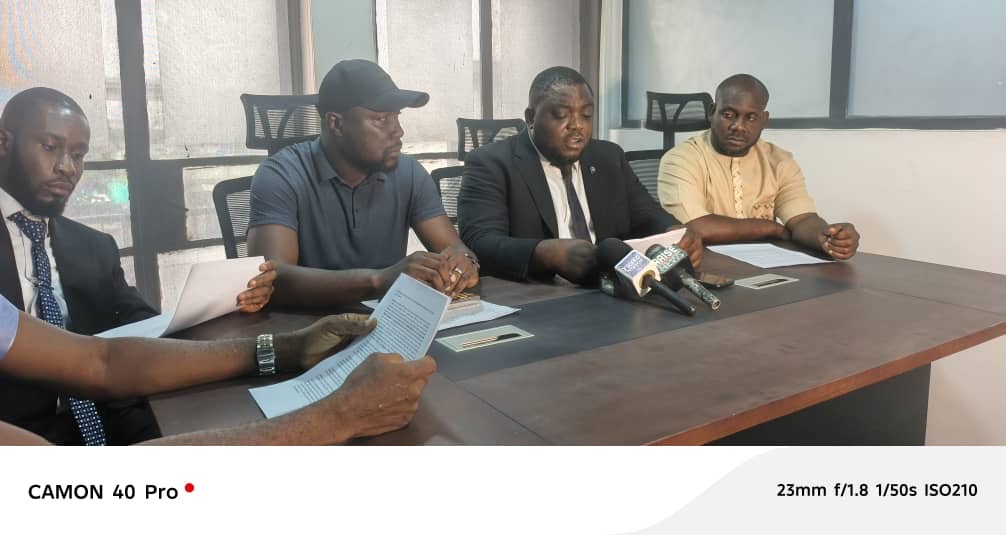
The Youth Forum of Ojomu Royal Family of Ajiran Town in Eti-Osa Local Government Area of Lagos State, has written a petition against the Commissioner of Police in the state, Moshood Jimoh, over the accusations levelled against Hammed Tajudeen.
Speaking at a press briefing in Lagos, the counsel to the Forum, (Adedotun Ajulo, Esq.), said the Lagos State Police Command cannot embark on a media trial in an alleged murder case.
The Forum said the police accused Tajudeen of sponsoring multiple murders without investigation. It stated that at no time was Tajudeen invited by the police for questioning.
It said: “At no time did he refuse or fail to honour any police invitation. At no time was any warrant of arrest issued against him by a court of competent jurisdiction.
“At no time was any judicial authorisation or order obtained to declare him wanted. Despite these concerns, on 20 February 2026, the Commissioner of Police, Lagos State Command, convened a press briefing during which the full image of Alhaji Hammed Tajudeen was displayed and he was publicly accused of sponsoring multiple murders.
“This unilateral and sensational declaration exposed him to public odium, ridicule, and severe reputational harm, all without the benefit of due process or the basic courtesy of an invitation for questioning.
“In the aftermath of the press briefing, hoodlums allegedly sponsored by the opposing parties seized upon the heightened tension to vandalize and destroy properties and assets belonging to Alhaji Hammed Tajudeen, as well as those of other identifiable members of the youth wing who are perceived to be aligned with him.
“These coordinated attacks further underscore the dangerous consequences of deploying the machinery of law enforcement in a manner that inflames communal hostilities rather than preserving public order.
“Subsequently, there has been an overwhelming and intimidating presence of both military personnel and policemen within the community, a development that has served only to further harass, threaten, and denigrate our Clients.
“Meanwhile, the opposing parties continue to enjoy open protection, enabling them to persist in the unchecked dissipation of the community’s common patrimony without resistance or accountability.
“The law is settled. The Administration of Criminal Justice Act, 2015, particularly Section 41, regulates the circumstances under which a citizen may be declared wanted.
“These conditions were not met in this case. Furthermore, the courts have held that the publication of a wanted notice without lawful authority is unconstitutional, illegal, and liable to be set aside.
“We emphasise that our clients are not opposed to lawful investigation. They have consistently cooperated with law enforcement agencies in the past and were previously exonerated after investigations.
“What they strongly oppose is indictment without investigation, trial by media, intimidation, and the use of police machinery to settle private disputes or advance personal interests.
“The issues concerning the Ojomu Royal Family long predate the tenure of the current Commissioner of Police, and it is noteworthy that his predecessors never conducted themselves in a manner suggestive of bias, compromise, or improper influence arising from any promise of advantage or lucre, whether direct or implied.
“Consequently, a formal petition has been submitted against the Lagos State Commissioner of Police and the Lagos State Police Command.
“Among the reliefs sought are the constitution of a special, neutral, and professionally competent investigative team to review the allegations; the prosecution of any persons found to have made false, malicious, or fabricated claims; and a public retraction of the unlawful declaration portraying Alhaji Hammed Tajudeen as a murderer.
“Our Client reiterates his readiness to make himself available for investigation, provided such inquiry is conducted without bias, compromise, or the procedural irregularities presently characterizing the handling of this matter and definitely not by Lagos State Commissioner of Police.
“We trust that the appropriate authorities will urgently intervene to restore confidence in due process, uphold the rule of law, and ensure that policing in Lagos State remains professional, impartial, and accountable.
“More troubling is the fact that such a pronouncement was made in the absence of any invitation, interrogation, or opportunity afforded to Tajudeen to respond to the allegations an omission that gravely offends the tenets of fairness, due process, and responsible policing.
“Furthermore, the conduct of the Commissioner raises serious questions as to whether the machinery of the state is being deployed to settle personal or communal scores rather than to uphold law and order.
“In a democratic society governed by the rule of law, no public officer is permitted to wield statutory powers in a manner that constitutes a media trial or exposes citizens to unwarranted public opprobrium.
“It is against this backdrop that we consider it imperative to address the public and set the records straight, ensuring that the rights and dignity of all parties are preserved while lawful processes are allowed to run their full and proper course.”
news
Maina: Defence Seeks to Quash Charge Before FCT High Court, Alleges Abuse of Court Process
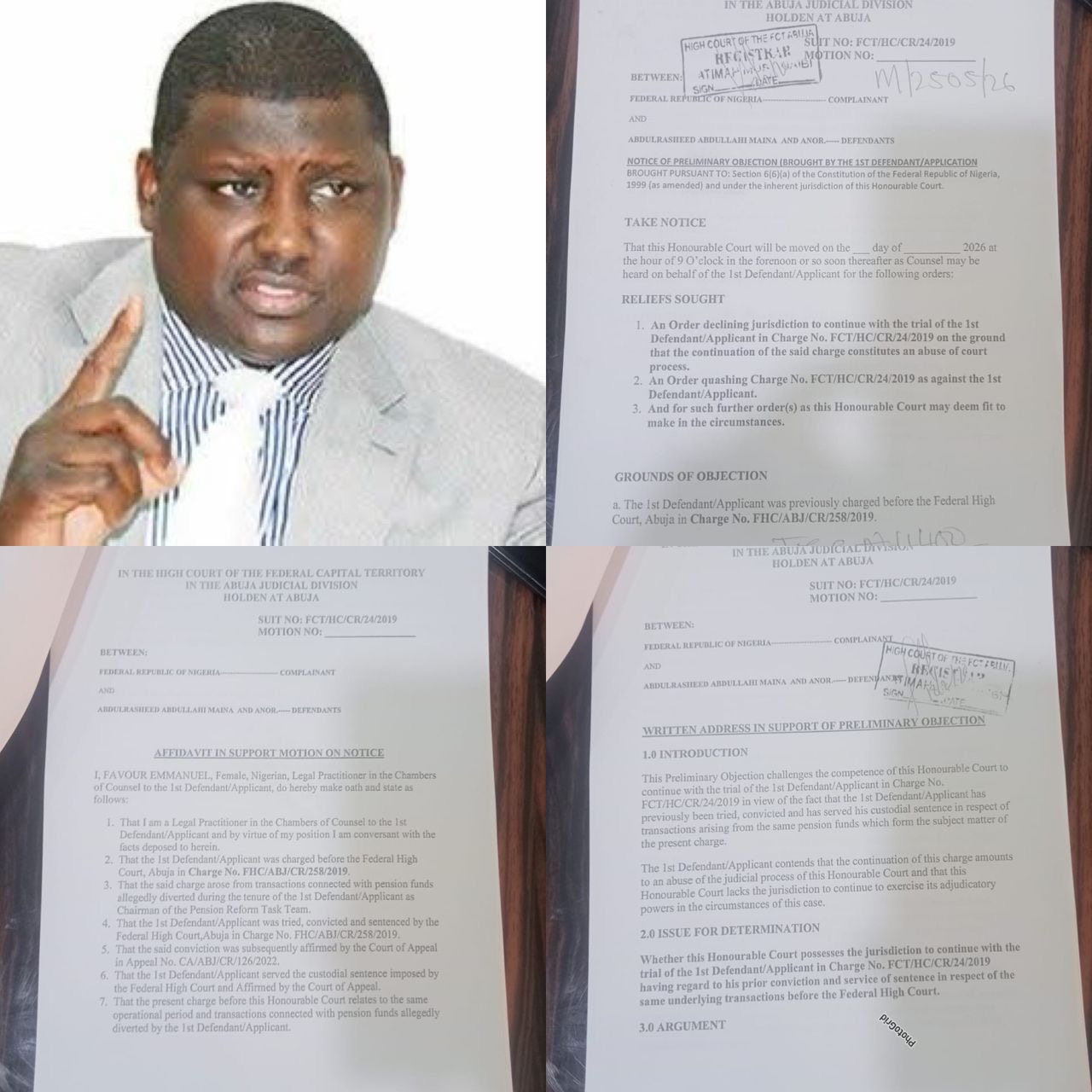
The Defence team representing the former Chairman of the Pension Reform Task Team (PRTT), Dr. Abdulrasheed Abdullahi Maina, has challenged the jurisdiction of the High Court of the Federal Capital Territory (FCT), Abuja, to continue proceedings in Charge No. FCT/HC/CR/24/2019, describing the ongoing prosecution as an abuse of court process.
This follows the filing of a Notice of Preliminary Objection by Counsel to the 1st Defendant, Mr. Emmanuel Umahi Ekwe, supported by an Affidavit and Written Address, urging the Court to decline jurisdiction and quash the charge against the 1st Defendant.
According to the processes filed before the Court, the Defence contends that the present charge arises from the same operational period and transactions relating to pension funds for which the 1st Defendant had previously been tried, convicted, and has served his custodial sentence pursuant to Charge No. FHC/ABJ/CR/258/2019 before the Federal High Court, Abuja.
The Defence maintains that the continuation of the present proceedings after prior conviction and service of sentence in respect of the same underlying transactions amounts to multiple prosecutions arising from the same factual foundation and constitutes an abuse of court process.
In the Written Address filed in support of the objection, Counsel argued that where a proceeding constitutes an abuse of court process, the Court is divested of the jurisdiction to continue with such proceedings, and that the present charge ought to be quashed in its entirety.
The Defence further submitted that the Preliminary Objection raises a fundamental threshold issue as to the competence of the charge before the Court and urged the Court to determine same before taking any further steps in the proceedings so as to avoid subjecting the Defendant to multiple trials in respect of the same underlying transactions.
The Preliminary Objection filed by Counsel to the 1st Defendant reads in part: “An Order of this Honourable Court quashing Charge No. FCT/HC/CR/24/2019 for want of jurisdiction, the same constituting an abuse of court process having arisen from the same set of facts and transactions in respect of which the 1st Defendant had previously been tried, convicted and has served his custodial sentence.”
It further states that: “The continuation of the present charge against the 1st Defendant after prior conviction and service of sentence in respect of the same underlying transactions amounts to multiple prosecutions arising from the same factual foundation and renders the present proceedings incompetent.”
Reacting to recent media reports alleging that the 1st Defendant was evading court proceedings, Counsel to the 1st Defendant and Senior Special Assistant on Media and Protocols to Dr. Maina, Barr. Emmanuel Umahi Ekwe, described the publications as misleading and malicious, insisting that the matter currently being circulated in the media is the same case originally filed in 2019 which had already been heard and disposed of.
He further stated that the recent filing by another prosecuting counsel amounts to a duplication of a matter already adjudicated upon, which constitutes double jeopardy and an abuse of court process.
Barr. Ekwe also maintained that there was no refusal on the part of the 1st Defendant to attend court proceedings, stating that Dr. Maina is presently hospitalised — a fact known to the court — and for which medical documentation had been duly presented.
He added that the renewed proceedings coincided with recent public demands for accountability in respect of approximately ₦1.3 trillion in cash and about 227 properties allegedly recovered during pension reform recovery operations carried out during Dr. Maina’s tenure, and called on the Federal Government and relevant oversight institutions to conduct an independent forensic audit of all assets and funds recovered under the pension reform investigations.
The case has been adjourned to 26th February 2026 for continuation of trial-within-trial.
news
Journalists for Good Governance Shines Searchlight on Local Government Administration

Journalists for Good Governance Shines Searchlight on Local Government Administration
…Calls for Accountability in Nigeria’s Grassroots Governance
LAGOS, Nigeria — A civil society coalition known as Journalists for Good Governance(JGG) has intensified public debate on transparency and accountability within Nigeria’s local government system, urging media professionals, civil society actors, and citizens to hold grassroots leaders accountable.
Speaking an event in Lagos recently, the acting chairman of the society, Comrade Bunmi Obarotimi said that despite reforms such as the Supreme Court’s 2024 ruling granting financial autonomy to all 774 Local Government Areas (LGAs), systemic challenges continues to hinder effective service delivery and responsible stewardship of public funds.
“Local governments are the closest tier of government to the people — yet too often they remain the least transparent. Without civic oversight and vibrant media, promises of autonomy ring hollow.” the acting chairman said.
The Journalist for Good Governance emphasised crucial roles that journalists can play in uncovering discrepancies in council spending, flagging poor service delivery, and educating citizens on their rights. Their call comes amid wider efforts by media and civic organisations to bridge accountability gaps. The civil society initiatives had previously launched monitoring campaigns to track local government expenditures and have been quietly advocating for transparency in how public money is deployed.
The leaders of the Journalists for Good Governance (JGG) highlighted the importance of physical assessment and citizens engagement on projects to boost people’s confidence, urging local councils to adopt open data platforms and proactive information dissemination in compliance with the Freedom of Information Act. Experts say the majority of LGAs currently lack operational websites or digital portals, further limiting public scrutiny.
The Journalists for Good Governance initiative aligns with sustained advocacy by civil society groups and governance experts calling for a collective approach to strengthening democratic accountability, and has decided to engage in critical and holistic assessments of how Local Governments is being run and the impact and quality of projects they embark-on and to address deficits in transparency and public trust.
Meanwhile, some state governments have signalled support for improved community engagement. In Lagos State, authorities reiterated a commitment to enhancing community media platforms as vehicles for civic participation and accountability at the grassroots level.
The renewed spotlight on local government administration has reignited public debate over fiscal responsibility and priorities. Controversies such as the widely criticised Adamawa council chairmen’s wives trip to Istanbul — which drew public outrage for perceived misuse of public funds — underscore why watchdog groups say stronger oversight mechanisms are urgently needed at the grassroots.
Citizens and activists have welcomed the journalists’ initiative, calling for sustained media engagement that goes beyond headlines to influence policy and accountability reform.
The civic rights advocates note that real change will require robust legal frameworks, a free press, and empowered communities equipped to demand transparency at every level of governance.
As Journalists for Good Governance mobilises its members, the coming months are likely to see heightened media attention on grassroots administration — from council budgets and service delivery to the enforcement of public information laws and digital transparency initiatives.
-

 celebrity radar - gossips6 months ago
celebrity radar - gossips6 months agoWhy Babangida’s Hilltop Home Became Nigeria’s Political “Mecca”
-

 society5 months ago
society5 months agoReligion: Africa’s Oldest Weapon of Enslavement and the Forgotten Truth
-

 society6 months ago
society6 months agoPower is a Loan, Not a Possession: The Sacred Duty of Planting People
-

 news7 months ago
news7 months agoTHE APPOINTMENT OF WASIU AYINDE BY THE FEDERAL GOVERNMENT AS AN AMBASSADOR SOUNDS EMBARRASSING



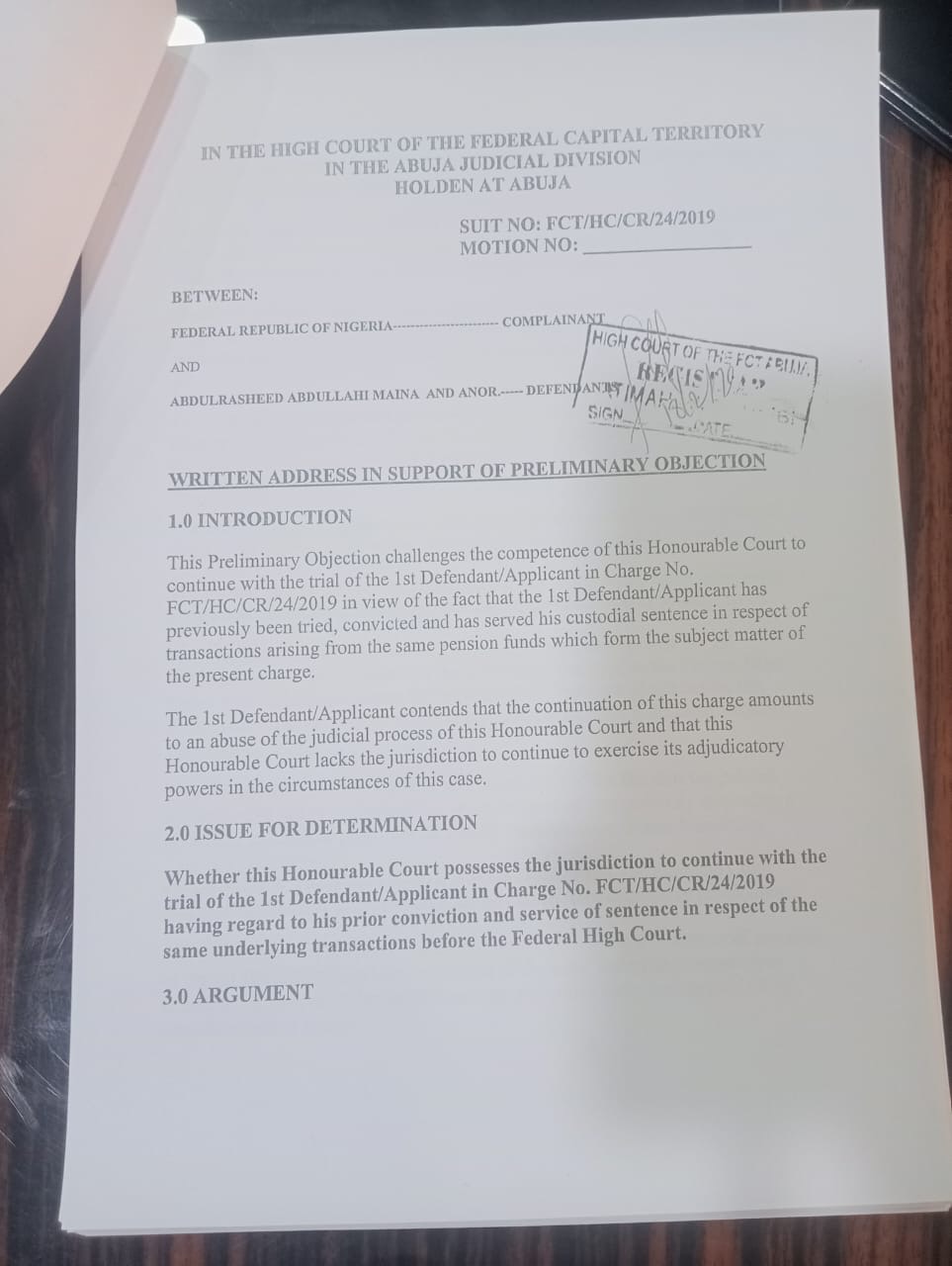
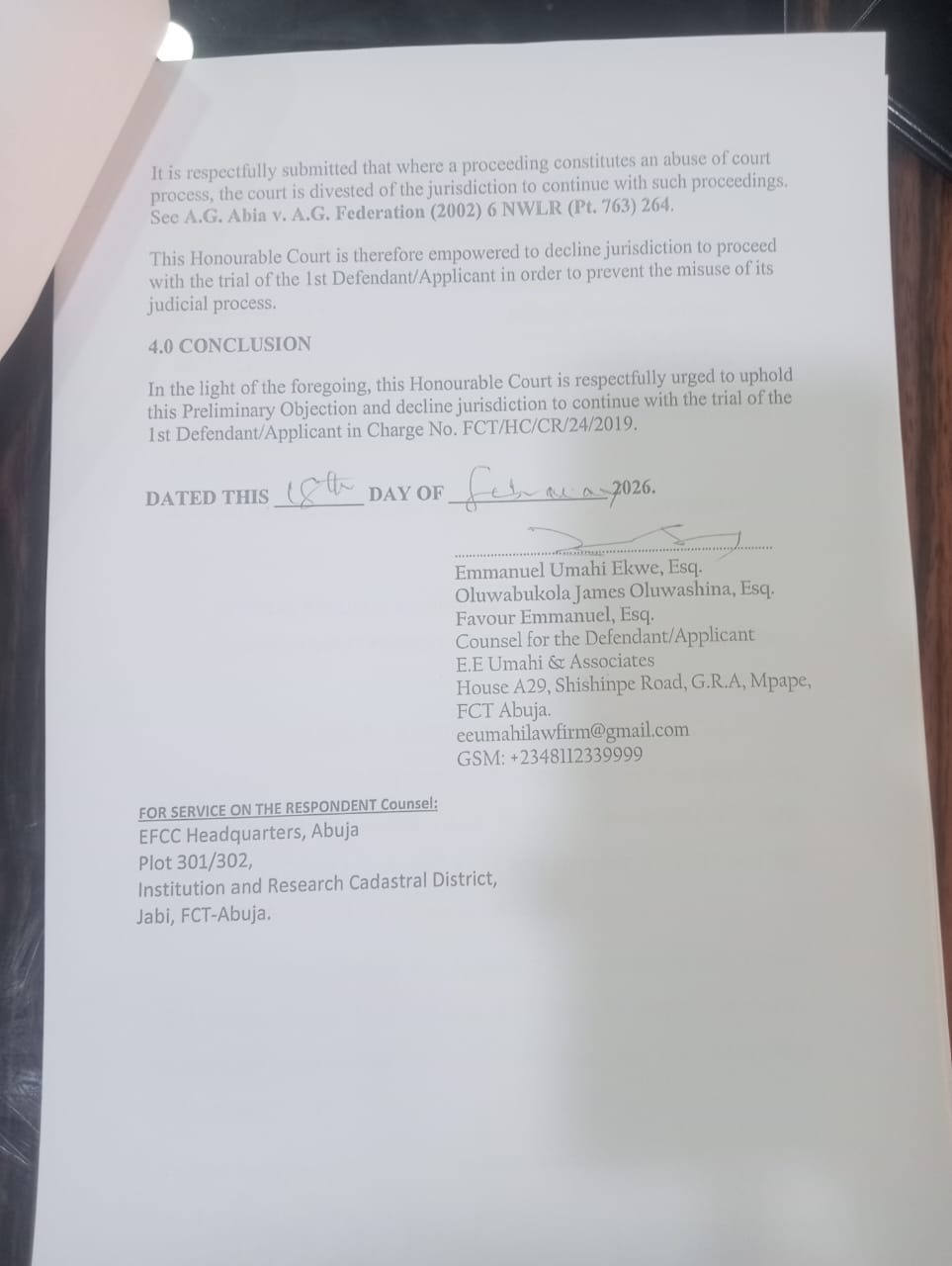
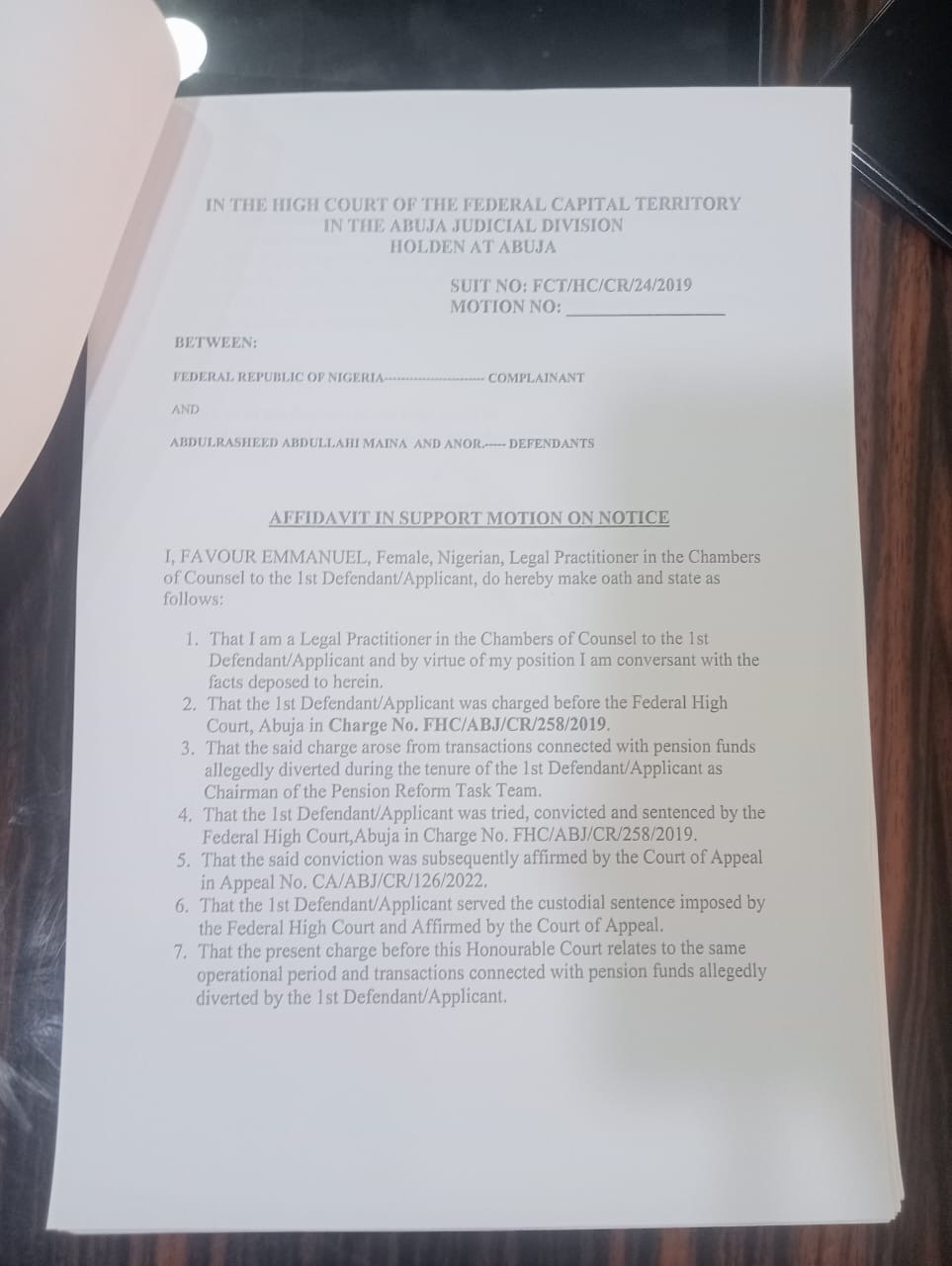
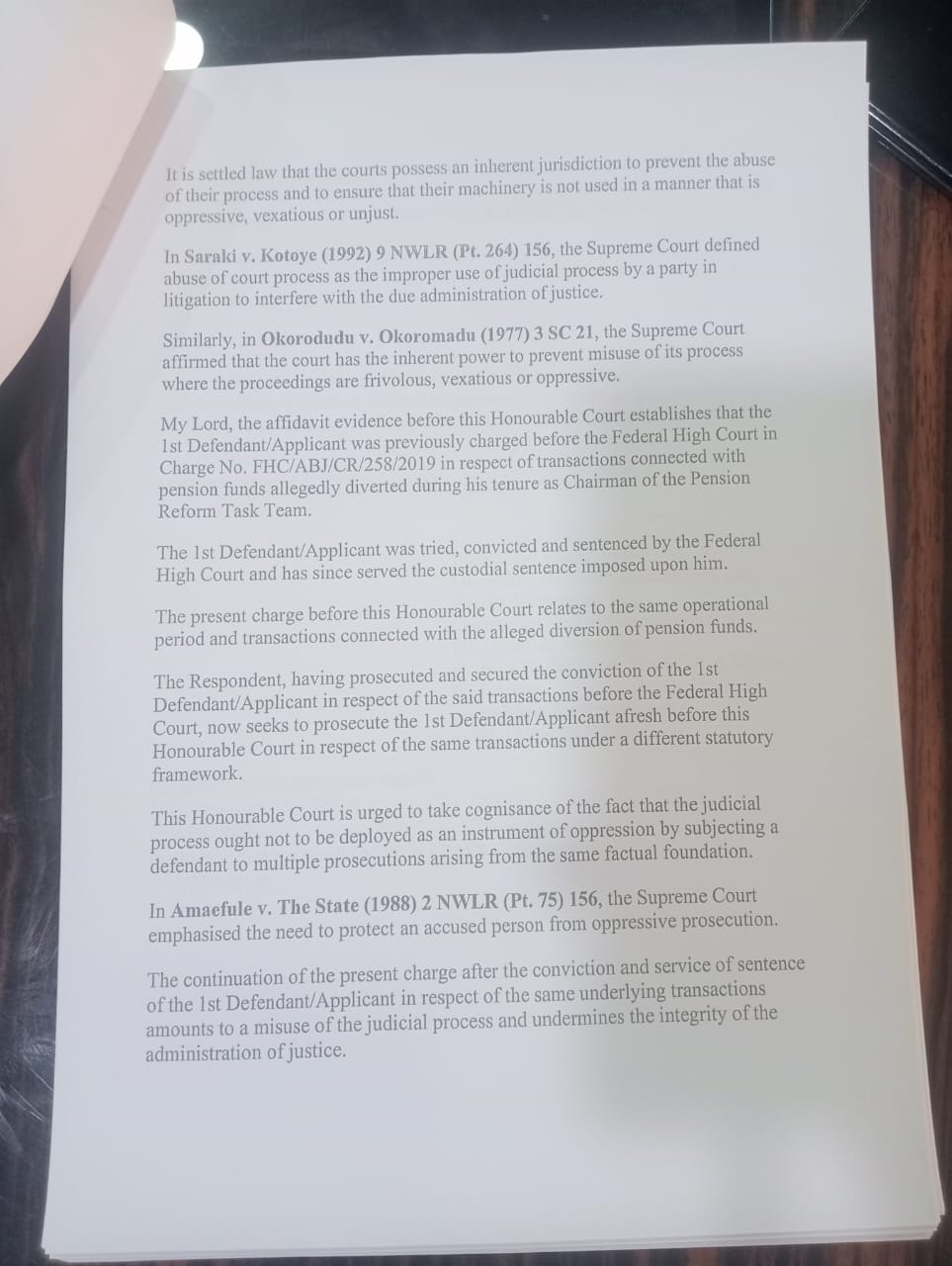

You must be logged in to post a comment Login